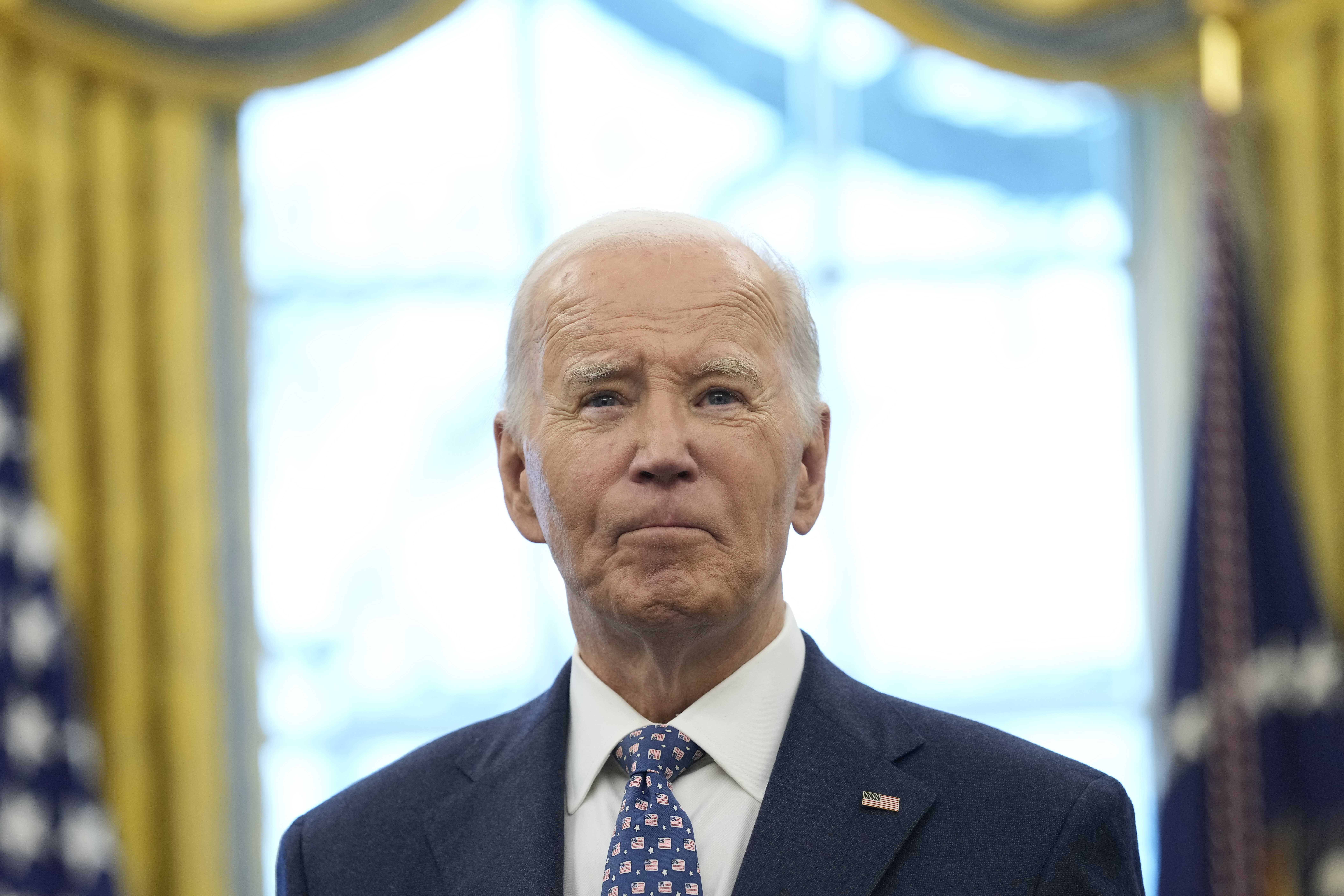The Political Logic Of Trump’s International Threats

Since winning a second presidential term, Donald Trump has made a curious pivot to a kind of performative imperialism. Immediately after November’s election, he began musing about acquiring Greenland from Denmark, which has no interest whatsoever in parting with the territory. His menacing gestures began to escalate. Trump has started taunting Canada by referring to its prime minister as a “governor” and vaguely threatening annexation. He began demanding a return of the Panama Canal, which the United States ceded more than four decades ago.
Today, during a press conference, Trump announced that he would rename the Gulf of Mexico the “Gulf of America.” When a reporter asked if he would disavow military and economic coercion in his efforts to seize Greenland or the Panama Canal, he declined to rule out either. “No, I can’t assure you on either of those two,” he mused. “I’m not going to commit to that. It might be that we will have to do something.”
[Robinson Meyer: Trump is thinking of buying a giant socialist island]
When an authoritarian-minded leader poised to control the world’s most powerful military begins overt saber-rattling against neighbors, the most obvious and important question to ask is whether he intends to follow through. That question, unfortunately, is difficult to answer. On the one hand, Trump almost certainly has no plan, or even concepts of a plan, to launch a hemispheric war. Seizing the uncontrolled edges of the North American continent makes sense in the board game Risk, but it has very little logic in any real-world scenario.
On the other hand, Trump constantly generated wild ideas during his first term, only for the traditional Republicans in his orbit to distract or foil him, with the result that the world never found out how serious he was about them. This time around, one of his highest priorities has been to make sure his incoming administration is free of officials whose professionalism or loyalty to the Constitution would put them at risk of violating their loyalty to Trump. We cannot simply assume that Trump’s most harebrained schemes will fizzle.
An easier question to answer is why Trump keeps uttering these threats. One reason is that he seems to sincerely believe that strong countries have the right to bully weaker ones. Trump has long insisted that the United States should seize smaller countries’ natural resources, and that American allies should be paying us protection money, as if they were shopkeepers and America were a mob boss.
A second reason is that Trump uses his international bullying as fan service for his base. The actual, concrete policy agenda of Trump’s presidency consists largely of boring regulatory and tax favors to wealthy donors and business interests—priorities that most of his voters don’t care about. Trump seems to grasp the need for public dramas to entertain the MAGA base.
Spectacles of domination play an important role in Trump’s political style. “Build the wall” is the classic example: Trump never did build his “big, beautiful wall” along the length of the southern border, yet his fans don’t hold that against him, because the physical manifestation of a barrier on the southern border was beside the point. They thrilled instead to the idea of a wall as an expression of strength and defiance. When Trump would respond to criticism by saying, “The wall just got 10 feet higher,” he was performing dominance. The real wall was the threats he made along the way.
The giveaway came when, during Trump’s first term, Democrats in Congress offered to fund the wall in return for minor immigration-policy concessions, at which point Trump appeared to lose interest in the project. The fact that Democrats would cooperate drained the trope of its transgressive allure.
[John B. Washington: Trump’s big border wall is now a pile of rusting steel]
Trump’s most recent gestures likewise reveal his symbolic intent. To be sure, you can construct a coherent policy rationale for some kind of international deal involving Greenland. But there is little evidence that Trump is interested in any kind of practical deal. He wants to menace allies. You don’t dispatch Donald Trump Jr., whose professional expertise, to the extent he has any, is monetizing the Trump brand, to advance a real diplomatic or military strategy. You send Don Jr. to entertain the base. Meanwhile, renaming the Gulf of Mexico isn’t even plausibly related to any economic or territorial objective. It’s pure symbolic bluster.
Trump could very well blunder from performative imperialism into a live shooting war. (When I was a kid, my teachers banned play-fighting at recess on the sound basis that it often led to the real thing). More likely, he will antagonize allies and provoke voters in those countries to elevate nationalist leaders of their own who will stand up to the United States rather than cooperate with it.
This would be a long-term cost to American foreign policy purchased for fleeting political gain—mortgaging the interests of the country to extract immediate value for Donald Trump. That form of arbitrage is precisely the kind of deal that Trump long ago turned into an art form.


